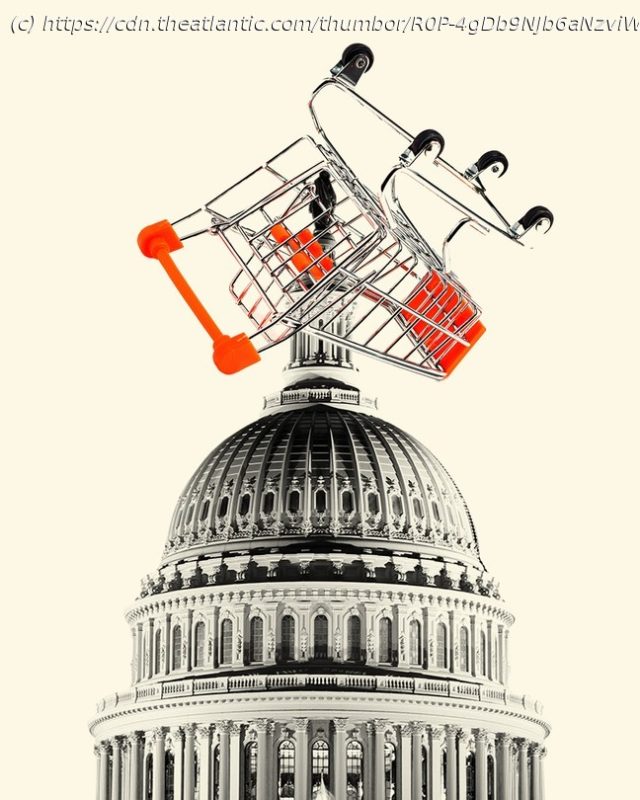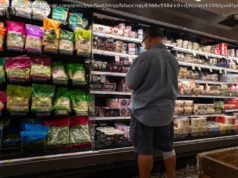The real culprit is the host of federal laws and regulations propping up prices to benefit corporate interests.
Last week in North Carolina, Kamala Harris called for a new federal law to ban “price gouging on food.” Such a law might be popular, but it would have, at best, no impact on grocery prices and might even make the problem worse. That’s especially unfortunate because it distracts from all the federal policy changes that actually could reduce food prices.
The evidence that price gouging was responsible for the post-pandemic spike in food prices is somewhere between thin and nonexistent. A recent report from the New York Federal Reserve found that retail food inflation was mainly driven by “much higher food commodity prices and large increases in wages for grocery store workers,” while profits at grocers and food manufacturers “haven’t been important.” Similarly, a 2023 report from the Kansas City Fed observed that rising food prices were overwhelmingly concentrated in processed foods, the prices of which are more sensitive to (and thus driven by) labor-market tightness and wage increases. Grocery profits did rise briefly during the pandemic, but the increase was the predictable result of increased demand (thanks to government stimulus along with more Americans eating at home) running headfirst into restricted supply (thanks to pandemic-related closures and supply-chain snarls, along with the war in Ukraine, a major food producer). In fact, expanding corporate profits frequently accompany bouts of heightened demand and inflation; the past few years have been no different.
Even if excessive corporate profits had been the cause of higher food costs, a price-gouging ban would do nothing to relieve Americans’ current burdens for the simple reason that food prices long ago stopped rising. From January 2023 to July 2024, the “food at home” portion of the Consumer Price Index increased by just over 1 percent, much less than the overall rate of inflation, and consistent with the long-term, pre-pandemic trend. The U.S. Department of Agriculture adds that the share of consumers’ income spent on groceries, which did tick up during the pandemic, declined last year and remains far below levels seen in previous decades. Did corporate profiteering suddenly just stop?
In reality, the grocery business has always had notoriously thin profit margins. According to the latest industry-wide data from NYU’s Stern School of Business, the industry’s average net profit margins were just 1.18 percent in January 2024—ranking 80th of the 96 industries surveyed and lower than the margins the food industry recorded in all but one of the past six years. Even Biden White House economists’ own analyses of grocery-price inflationin both 2023 and 2024 downplayed corporate profiteering when discussing recent price trends and what’s behind them.
Inflation is generally a macroeconomic issue, driven by broad monetary and fiscal policies, not the choices of individual corporate actors.






